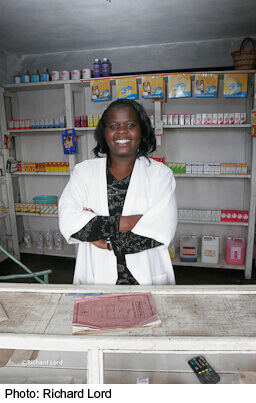Kim LufkinGHTC
Kim Lufkin is a communications officer at GHTC.
Last week, the National Center for Advancing Translational Sciences (NCATS) at the National Institutes of Health (NIH) announced a key benchmark for the program—the formation of its new Advisory Council, which will meet for the first time later this month.
Since NCATS was created, the GHTC has been particularly interested in tracking its progress in taking up initiatives that could accelerate the development of new drugs for global health. As the largest funder of global health research and development in the world, the NIH must ensure that its initiatives and programs like NCATS continue to support the creation of much-needed new tools like vaccines, drugs, and diagnostics.
We’ve been waiting for NCATS to announce its Advisory Council members, in the hopes that scientific experts with a background in global health would provide much-needed guidance to the center’s director—as well as NIH Director Francis Collins and Health and Human Services Secretary Kathleen Sebelius—on NCATS policies, initiatives, and programs. It comes as a disappointment, therefore, to learn that no global health experts are serving on the NCATS Advisory Council during this initial four-year term. Much like new initiatives coming out of NCATS, the center’s new council seems to focus primarily on diseases that affect US populations.

There’s no question that rare and other diseases in the US deserve support from NCATS. But so do neglected diseases that affect people around the world. And as Peter Hotez from the Sabin Vaccine Institute recently pointed out, neglected tropical diseases, traditionally “confined” to developing countries, are becoming the new diseases of poverty in the US. With support from NCATS and other US government programs, researchers should receive much-needed funding to create new tools to fight neglected diseases that have long impacted people overseas and are now appearing domestically.
It was encouraging to see that the new Review Board at the Cures Acceleration Network, an NCATS program, includes two global health experts. We hope that NCATS and its Advisory Council follow suit and start prioritizing research for global health.